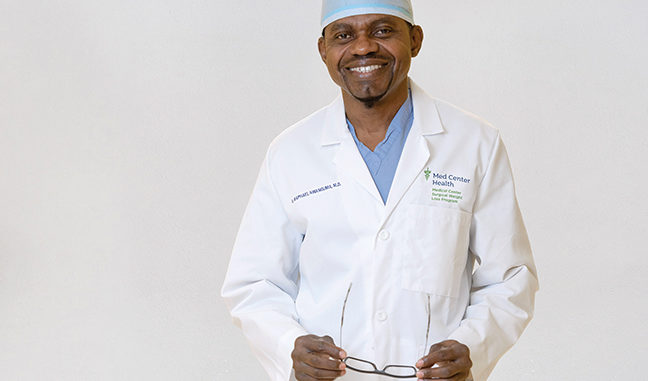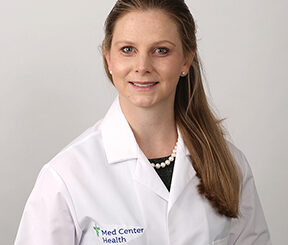
For those people who have tried every diet and lifestyle change to lose weight and nothing has worked, The Medical Center Surgical Weight Loss Program offers hope. Especially designed for patients with a BMI of more than 35, the program provides the tools people need to achieve healthy weight for life.
Body Mass Index, or BMI, is a screening tool for obesity. The number is arrived at by dividing your weight in kilograms by the square of your height in meters. If you’re not a math whiz, you can find a BMI calculator at CDC.gov/BMI. A BMI of 25 to 29.9 means you are overweight. A BMI over 30 is considered obese — and obesity can lead to many life-threatening chronic illnesses, including diabetes and heart disease.
“When a patient comes to us,” said O. Raphael Nwanguma, MD, FACS, bariatric surgeon with Medical Center Surgical Weight Loss Program, “we emphasize that they are more at risk not having the surgery than with having the surgery done. Many patients experience substantial reductions in diabetes, high blood pressure and heart disease after losing weight through the program.”
Contrary to popular belief, losing weight isn’t just a matter of will power. According to the American Society for Metabolic and Bariatric Surgery (ASMBS), many factors can cause the body to not use, or metabolize, the fat it is storing — including chronic sleep loss, stress, and many types of medications. The National Institutes of Health (NHI) Experts Panel recognizes that long-term weight loss is nearly impossible for people with severe obesity by any means other than surgery.
The Medical Center Surgical Weight Loss Program is accredited as a Center of Excellence by the Surgical Review Corporation (SRC) and can provide the tools patients need for successful weight loss before and after surgery. The program begins with a psychological evaluation and in-depth nutritional education. Classes conducted by registered dietitians are a mandatory part of the program and many patients do not undergo surgery until 3-6 months into the program. This is to ensure they understand their new lifestyle and are on the path that will work best for them.
In addition to the program’s Center of Excellence accreditation, Dr. Nwanguma has received SRC’s Surgeon of Excellence honors and has been awarded the Master Surgeon in Metabolic and Bariatric Surgery Accreditation, SRC’s highest individual distinction. “The most important thing to note,” said Dr. Nwanguma, “is that the Center of Excellence award in bariatric surgery is not a surgeon’s award. It is an institutional award. While we have proven that we have high surgical volume with minimal complications, Med Center Health has demonstrated its dedication to the care of bariatric patients.”
There is rigorous follow-up after surgery, and patients see Dr. Nwanguma once a year every year for the rest of their lives. Telemedicine is available for patients to meet with Dr. Nwanguma or his staff via a computer or tablet without having to come into the office.
To learn more about the program and to see if surgical weight loss is right for you, call 270-796-6333. You can also view videos and read more at MedCenterHealth.org/SWLP.
-submitted by Med Center Health






